PRESS RELEASE ON THE LOSS OF MEMBERSHIP OF THE NATIONAL ACCREDITATION BODY (NAT) IN THE EUROPEAN ASSOCIATION FOR QUALITY ASSURANCE IN HIGHER EDUCATION (ENQA) SOFIJE PEKIĆ QUARRIE
As a long-term member of KAPK (2011-2018), as a contact person of KAPK in ENQA who participated on 2 occasions in the evaluation process of KAPK by ENQA and, finally, as a member of the board of ENQA (2017-2018), I have the need to point out to the public a few important facts regarding the decision of the ENQA board not to grant NAT full membership in this European organization.
1. The quality assurance system in higher education was defined for the first time in our country by the Law on Higher Education in 2005. Then the Commission for Accreditation and Quality Control (KAPK) was formed as a working body of the National Council for Visual Education (NSVO), standards and procedures were developed and implemented in several accreditation cycles since 2007.
2. The system received international verification with the full membership of KAPK in ENQA for the first time in 2012 and then in 2018 for 2 years with a monitoring instrument, given that a new law was already passed that foresees the formation of an independent agency, so it was a logical decision of the board to leave 2 years to constitute a new agency. Thus, the new accreditation body initially had full membership in ENQA based on the KAPK membership obtained in 2018. If she had no merit in the period between the 2 evaluations, KAPK would have lost full membership in February 2018.
3. Both reports of the ENQA evaluation panel (both 2012 and 2018) stated that KAPK was granted full membership primarily on the basis that it was shown to make decisions as an independent body. However, numerous shortcomings and remarks were mentioned, of which I will single out only the most important ones, which are repeated in both reports. So it is recommended:
– organizational and financial independence from the Ministry
– formation of an appeal panel as an independent expert body, i.e. independence from NSSO
– change in procedures that will ensure greater participation of reviewers in the evaluation process
– the public of evaluation reports
– developing internal quality control mechanisms of the agency
– the regularity of carrying out the analysis process and making systemic and thematic analyses
– higher level of communication with reviewers and regularity of their training
– continuous improvement of administrative staff and increase of their competences for various jobs in the agency
– advisory function to higher education institutions
4. Almost all of these objections required changes to the Law, so KAPK actively participated in the proposals for the new Law on Higher Education in 2015 (annex 1), then it made objections to the Draft Law from 2017 (annex 2) and finally I personally, in her capacity as a member of the ENQA board, she made a proposal for the structure of the NAT professional service (annex 3). All these proposals would greatly remove ENQA’s objections and create an agency that meets European standards. Unfortunately, they are largely ignored!
5. A positive change that has occurred in the meantime is changes in procedures that increased the role of reviewers in the evaluation process as well as the financial and organizational independence of the agency. This was made possible by amendments to the Law from 2017.
6. This Law, however, brings a much greater influence of the Ministry on the bodies that implement quality assurance processes (NAT, KAPK and NSVO), which is reflected in the selection procedures of their representatives. It is also problematic that in the new KAPK convocation there is not a single old member, which is implemented in other agencies as a principle for the sake of continuity in work. This potentially threatens the professionalism and independence of KAPK in the decision-making process, which the ENQA evaluation panel could also state.
All in all, the opportunity to structure the new agency according to the objections from the evaluation reports of ENQA into a modern, modern European agency, which was the most logical approach, was missed, which led to the loss of membership in this European association as well as to the lowering of the reputation of our higher education in the European educational area.

